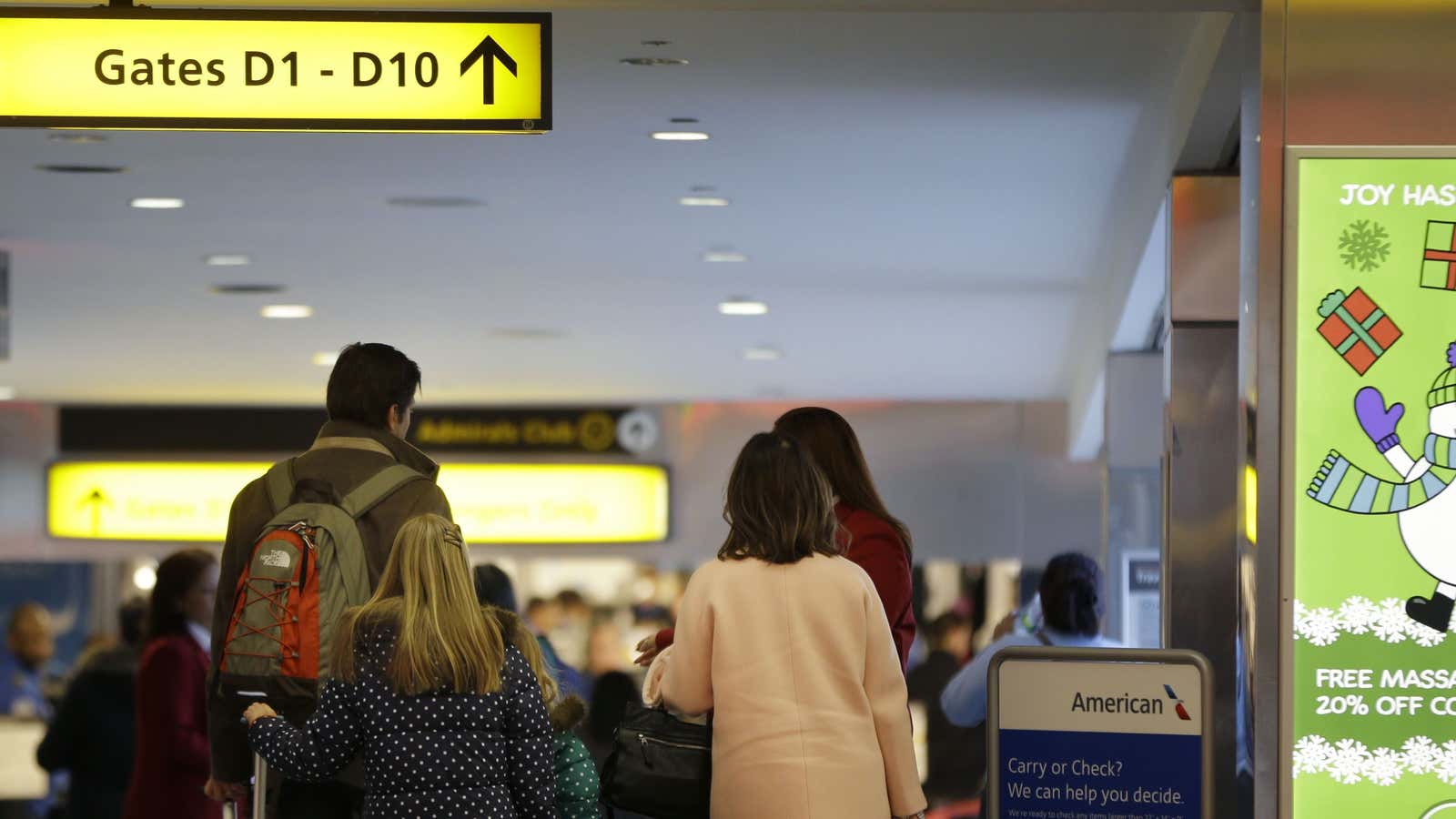The process of getting through an international airport’s double doors and back out into the world after collecting your baggage can seem interminable. And in New Zealand, travelers have long been subject to even more scrutiny—and accompanying fines.
If you’ve inadvertently picked up an apple from the flight, you face a charge of NZ$400 (US$260). If you have deliberately left something off your customs declaration form, that bill shoots up to a potential NZ$50,000 (US$32,500). These are necessary steps, officials say, to protect the South Pacific island nation’s fragile biodiversity.
But there’s a new fine on the list, and it doesn’t have anything to do with the risks posed by foreign plant or animal products.
Travelers who refuse to hand over their phone or laptop passwords to customs officials may be slapped with a NZ$5,000 (US$3,250) bill. It’s part of the Customs and Excise Act 2018, which came into effect Oct. 1. The legislation allows what some are calling “digital strip-searches”—officials are authorized to go through the files saved to it while the device is in flight mode. If travelers don’t unlock their devices with a password, fingerprint or PIN code, they will have “committed an offence,” the act says, and be “liable on conviction to a fine not exceeding $5,000.”
The country’s customs officials have been able to demand travelers’ electronic devices upon entry for some time, but this law is the first that allows them to demand a password. In theory, very few people will be asked for it.
As Radio New Zealand reports, officials need to have a reasonable suspicion of wrongdoing—last year, officials searched roughly 540 electronic devices. Customs Minister Kris Faafoi says the act will be useful in targeting sophisticated organized crime groups: “If we do think they’re up to that kind of business, then getting intelligence from smartphones and computers can be useful for a prosecution.”
Critics worry the cost to individual privacy is too great for no real reason, especially as files stored on the cloud will not be included in the search. Thomas Beagle, a spokesman for the country’s Council for Civil Liberties, said the law is an unjustified invasion of privacy, giving officials access to “all our personal life, all our doctors’ records, our emails, absolutely everything on it.” He worried that the “reasonable suspicion” stipulation was too vague, and that people would not be able to challenge it.
There’s legitimate cause to fear that racial profiling will be used to decide who gets searched. Last year, New Zealanders of Syrian descent spoke out about experiencing hours of questioning at airports and questioned whether the searches were indeed “random.” The customs agency also has been accused of targeting people with dark skin, including honorary South African consul Gregory Fortuin, who was detained and questioned about his occupation and reasons for being in New Zealand.
